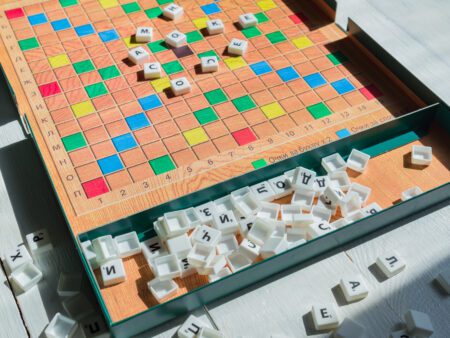Explore the fascinating history of gambling, tracing its origins and evolution up to the present day. From ancient civilizations to modern-day casinos, gambling has captivated people throughout history.
The History of Gambling: From Ancient Times to the Present
Introduction
Humans have been gambling for thousands of years. From ancient civilizations to modern-day casinos, the thrill of taking a risk and the possibility of winning big have captivated people throughout history. In this article, we will explore the fascinating history of gambling, tracing its origins and evolution up to the present day.
Ancient Origins
Gambling can be traced back to ancient civilizations, where it played a significant role in their cultures and societies. The earliest records of gambling date back to 2300 BCE in ancient China, where the Chinese played a game of chance with tiles. Gambling was also prevalent in ancient Rome, where it was seen as a form of entertainment for the upper classes.
Source: History.com
Medieval Europe and Playing Cards
In medieval Europe, gambling took on a new form with the introduction of playing cards. The first recorded use of playing cards dates back to the 9th century in China, and they gradually spread to Europe during the 14th century. Playing cards opened up new possibilities for gambling, with games like poker and blackjack becoming popular in the 18th and 19th centuries. Gambling establishments, known as casinos, began to emerge during this time as well.
Source: GamblingSites.org
The Rise of Modern Casinos
The concept of casinos as we know them today started to take shape in the 17th century. The first legal casino, the Ridotto, opened in Venice in 1638, providing a controlled environment for gambling. As gambling spread across Europe, the rise of the internet in the 1990s revolutionized the industry.
The Internet Age
The internet age brought about a significant shift in gambling, with the emergence of online casinos. The first online casino, InterCasino, was launched in 1996, allowing people to gamble from the comfort of their own homes. The convenience and accessibility of online gambling led to a boom in the industry, with numerous online casinos and betting sites popping up.
Source: GamblingSites.com
Gambling Today
Today, gambling is a multi-billion dollar industry that spans the globe. Land-based casinos continue to thrive, offering a wide range of games and entertainment options. Online gambling has also become increasingly popular, with the convenience of mobile devices allowing people to gamble on the go. The industry continues to evolve, with advancements in technology and the introduction of virtual reality and augmented reality gambling experiences.
Despite its long history, gambling remains a controversial topic, with debates over its societal impact and potential for addiction. However, for many, gambling is simply a form of entertainment and a chance to test their luck.
Conclusion
The history of gambling is a testament to the enduring human fascination with taking risks and the thrill of a potential reward. From ancient civilizations to modern-day casinos, gambling has evolved and adapted, continuing to captivate people around the world. Whether it’s the roll of dice, the spin of a roulette wheel, or the shuffle of cards, gambling has become deeply ingrained in our culture, offering excitement, entertainment, and the possibility of winning big.
What are your thoughts on the history of gambling? Have you ever tried your luck at a casino? Share your experiences and join the discussion!










